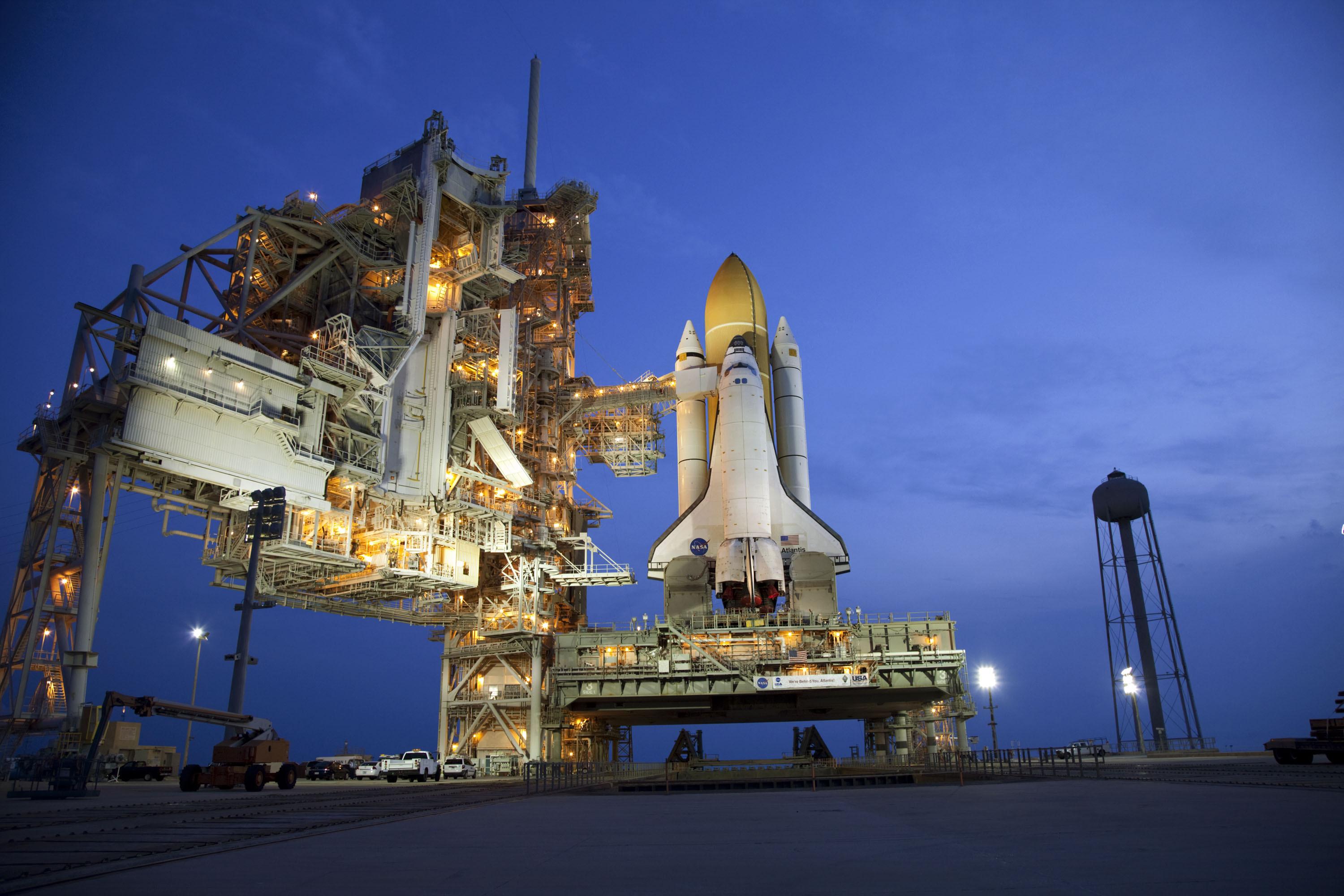NASA Fuels Shuttle Atlantis in Test for Last Launch

This story was updated at 2:39 p.m. EDT.
Space shuttle Atlantis' massive external tank was filled with super-cold liquid fuel today (June 15), just as it would on launch day, to test upgrades that were made to the tank in advance of its scheduled liftoff next month.
The so-called "tanking test" was scheduled to begin this morning at 7 a.m. EDT (1100 GMT), but stormy weather last night at NASA's Kennedy Space Center in Cape Canaveral, Fla. delayed the work until around 11 a.m. EDT (1500 GMT).
Reports indicated that lightning struck within a quarter mile of Launch Pad 39A, but preliminary assessments show no damage to either Atlantis or the pad, NASA officials said.
NASA is aiming to launch Atlantis on its STS-135 mission — the last flight of the agency's space shuttle program — on July 8 at 11:40 a.m. EDT (1540 GMT). The shuttle will carry four astronauts and a cargo bay full of spare parts on a 12-day trip to the International Space Station.
During today's tanking test, technicians filled Atlantis' external fuel tank with more than 500,000 gallons of liquid oxygen and liquid hydrogen, and ran through regular countdown procedures, to make sure the tank is safe and robust enough to fly. [Gallery: Shuttle Atlantis' Last Launch Pad Trek]
"It's really just to fill the tank and de-tank, then let the team do the high-tech X-rays during the next week," NASA spokesman Allard Beutel told SPACE.com.
Get the Space.com Newsletter
Breaking space news, the latest updates on rocket launches, skywatching events and more!
NASA decided to perform the test because of issues that were detected on the shuttle Discovery's external tank, which eventually delayed the STS-133 mission for several months. Repairs and modifications were made to Discovery's tank, and when the shuttle launched in late February, the external tank performed flawlessly, NASA officials said.
Since Atlantis' external tank was constructed with the same materials and was manufactured during the same processing flow, engineers preemptively fixed the tank the same way they did with Discovery's. Today's tanking test will allow ground teams to collect data and assess how these modifications will hold up for launch.
Engineers will take X-ray scans of the orbiter-facing side of a section called the intertank, which is the part of the external tank that caused troubles in the lead-up to Discovery's launch. [The Most Memorable Space Shuttle Missions]
"We're going to go ahead and do the tanking test to prove to ourselves that nothing unexpected happened, all our models are right, and we do understand how this [modification] performs," Mike Moses, chair of the shuttle's mission management team, said in a news briefing on June 1. "The X-rays are really that double check to show we understand the stresses that got put into the system. Obviously we'll look at the data and if we're not happy with what we see, we'll take the next course of action. It really is that safety check of that band-aid that we put on the tank."
The X-ray scans are expected to begin on Saturday, Beutel said, and should take about a week to complete. Agency officials are confident in the modifications that were made, and expect Atlantis' tank to perform well, the way Discovery's tank did.
"We've had three tankings since the modifications were first performed for STS-133, two were for launches and one was a scrub […] and the modifications worked exactly as expected," Beutel said.
You can follow SPACE.com Staff Writer Denise Chow on Twitter @denisechow. Follow SPACE.com for the latest in space science and exploration news on Twitter @Spacedotcom and on Facebook.
Join our Space Forums to keep talking space on the latest missions, night sky and more! And if you have a news tip, correction or comment, let us know at: community@space.com.

Denise Chow is a former Space.com staff writer who then worked as assistant managing editor at Live Science before moving to NBC News as a science reporter, where she focuses on general science and climate change. She spent two years with Space.com, writing about rocket launches and covering NASA's final three space shuttle missions, before joining the Live Science team in 2013. A Canadian transplant, Denise has a bachelor's degree from the University of Toronto, and a master's degree in journalism from New York University. At NBC News, Denise covers general science and climate change.